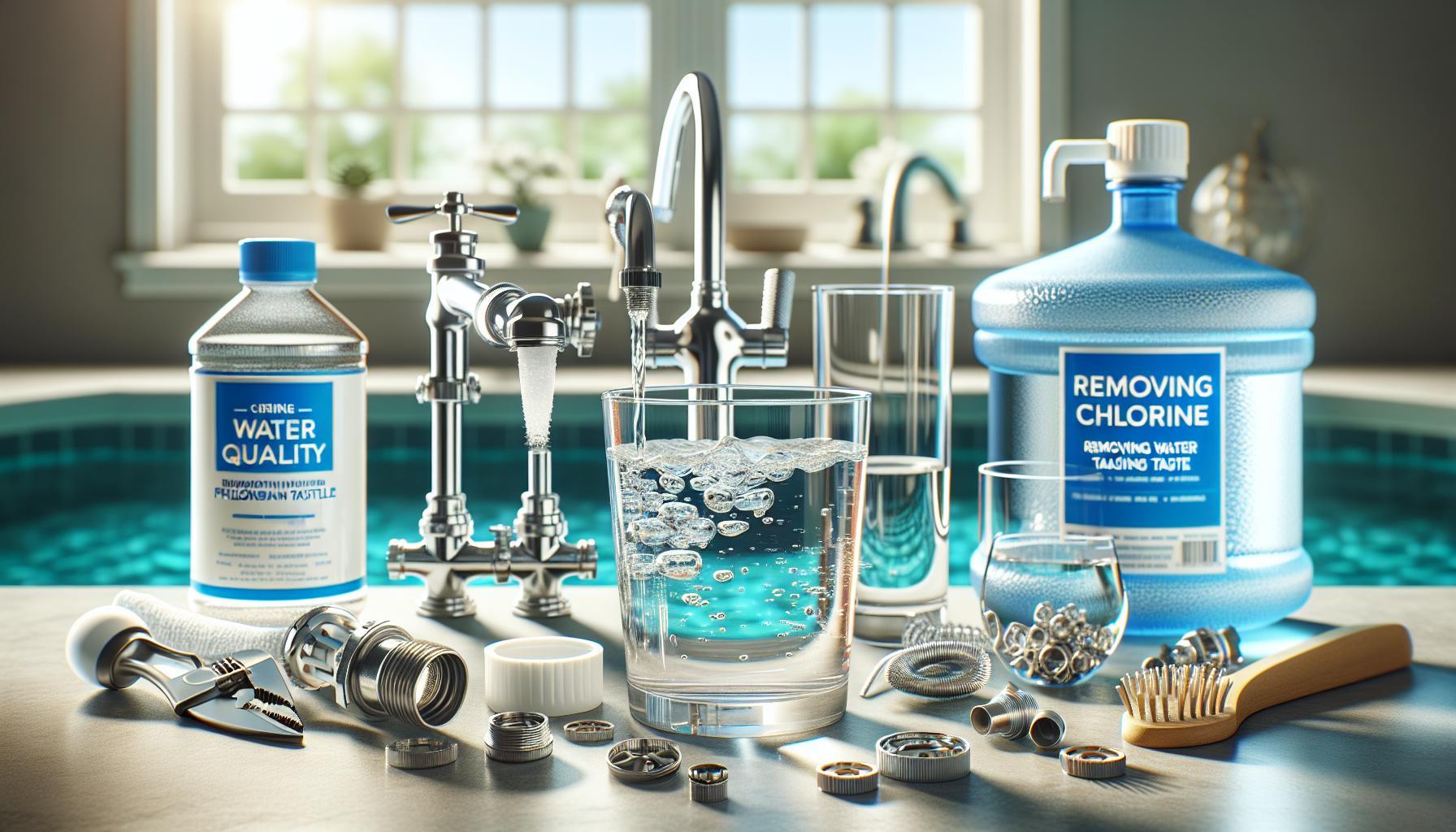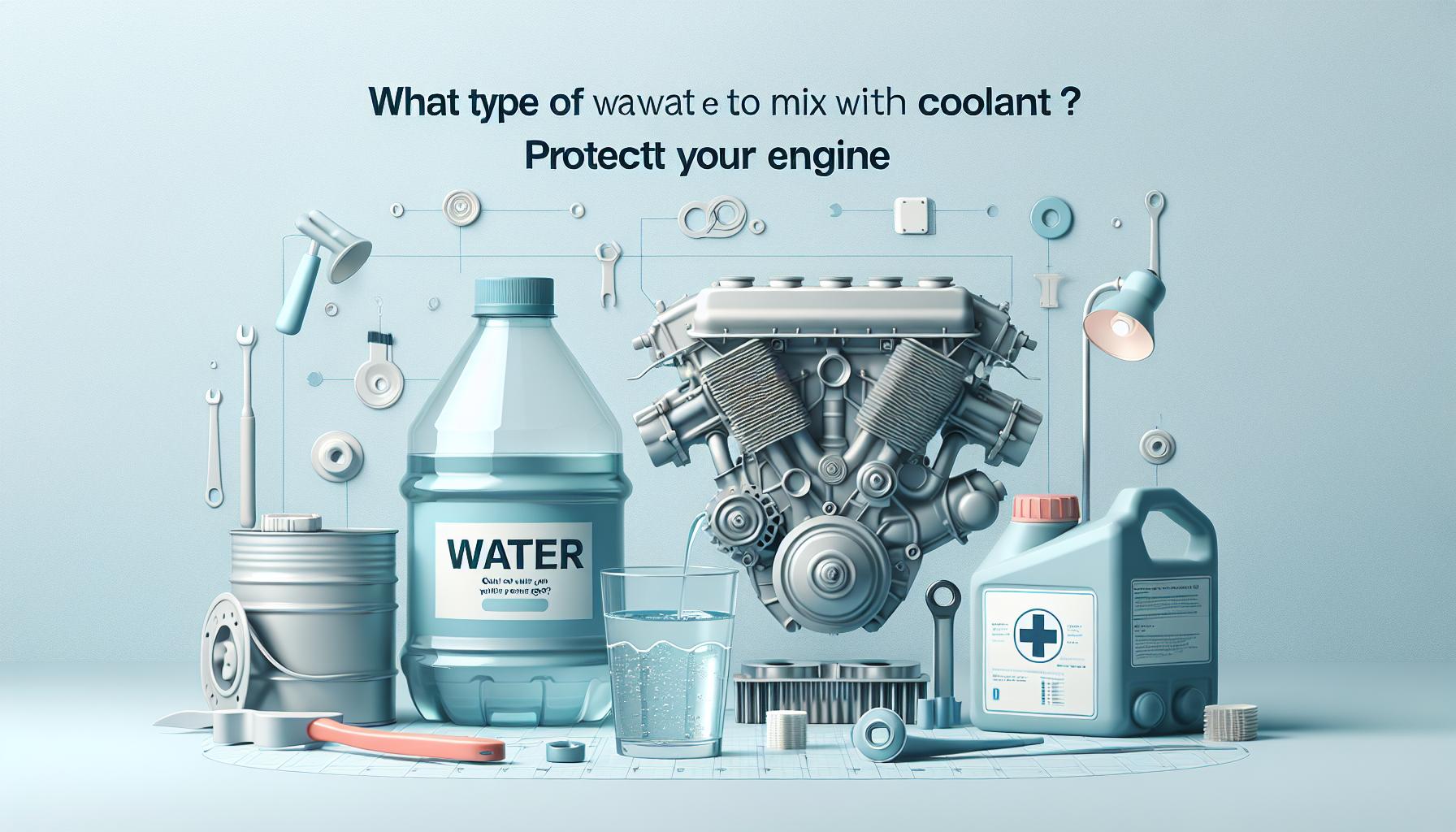Can you legally dispose of grey water on your property? This pressing question affects homeowners seeking eco-friendly solutions and compliance with local regulations. Understanding the legalities and environmental impacts of grey water disposal is crucial for sustainable living and can help you make informed decisions that benefit both your garden and the community.
Understanding Grey Water: What Is It and How Is It Different from Other Wastewater?
Understanding the nuances of grey water is crucial, especially as more communities seek sustainable water management practices. Grey water, essentially the wastewater generated from activities like showering, washing dishes, and laundering, differs significantly from black water, which originates from toilets. This differentiation is paramount for both environmental management and legal considerations, particularly when discussing the intriguing question, “Can You Dump Grey Water on the Ground? Legal and Environmental Facts.”
What is Grey Water?
Grey water constitutes about 50-80% of residential wastewater and is generally considered less contaminated than black water. This classification allows grey water to be recycled and reused for non-potable purposes, such as irrigation and landscaping. Its components typically include soap, dirt, food residues, and organic matter. Notably, grey water does not contain hazardous materials like human waste, making it a potential resource for sustainable practices. The effective management of this type of water can alleviate pressure on sewer systems and reduce overall water consumption.
Key Differences Between Grey Water and Other Types of Wastewater
Understanding the distinctions between grey water and other forms of wastewater is essential for effective treatment and legal compliance. Here are the main categories:
- Grey Water: From sinks, showers, and washing machines; can be reused for irrigation and non-potable applications.
- Black Water: Contains human waste and requires treatment before disposal; unsuitable for reuse without extensive processing.
- Stormwater: Runoff collected from rainfall can carry pollutants but is not classified as wastewater generated by human activities.
The regulations surrounding the disposal and reuse of grey water can vary greatly by region. Many areas allow grey water to be dumped directly on the ground, provided it meets specific criteria. Understanding local laws is critical before initiating any grey water recycling or disposal practices. For instance, grey water systems may need to be designed to prevent cross-contamination with potable water supplies, adhering to local health codes.
In conclusion, as the conversation around sustainable water use continues to grow, the role of grey water becomes increasingly significant. By grasping its characteristics and benefits, communities can move towards more efficient water use and management strategies that respect both the environment and public health.
Legal Restrictions: What You Need to Know About Grey Water Disposal
The use of greywater, which is the wastewater from sinks, showers, and laundry, can be an eco-friendly solution to conserve water. However, understanding the legal landscape surrounding its disposal is crucial for homeowners and builders alike. Many regions have enacted specific regulations that govern how greywater can be treated and reused, reflecting a growing awareness of water conservation practices while safeguarding public health and the environment.
State Regulations
Different states exhibit varying degrees of permissiveness when it comes to greywater disposal. For instance, while some states regulate greywater similarly to septic waste, requiring it to be disposed of through septic systems, others adopt a more flexible approach. Notably, states like West Virginia and Massachusetts impose restrictions, only allowing greywater systems in conjunction with composting toilets. This variability underscores the importance of checking local laws before implementing any greywater recycling system.
- Restricted States: States that treat greywater like septic water.
- Permitting Systems: Areas that allow greywater systems only with specific conditions (e.g., composting toilets).
- Permissive Regions: States that encourage household greywater systems with minimal restrictions, often focusing on reduced water usage.
Health and Environmental Considerations
Legal restrictions surrounding greywater disposal aren’t merely bureaucratic; they are rooted in health concerns. Greywater can harbor pathogens and contaminants, which, if not managed properly, can impact groundwater and local ecosystems. In fact, improper disposal can lead to nonpoint source pollution, a major environmental issue in many areas. This means that guidelines often emphasize treatment methods that ensure harmful substances are removed before the water is reused or released into the environment.
To navigate these waters effectively, here are some actionable steps homeowners can take:
- Contact local health departments to understand specific regulations applicable in your area.
- Research state and local guidelines regarding the installation and maintenance of greywater systems.
- Consider consulting with professionals who specialize in water conservation practices to ensure compliance with all legal requirements.
Legalities surrounding greywater often revolve around ensuring both safety and sustainability. By being informed and proactive, you can contribute to water conservation efforts without running afoul of the law. Always remember that safe and responsible management of greywater not only benefits your household but also the wider community and environment.
Environmental Impact: How Dumping Grey Water Affects Your Surroundings
Understanding the environmental implications of disposing of grey water is crucial for maintaining the health of ecosystems and communities. While grey water—wastewater from sinks, showers, and laundry—may seem relatively harmless compared to black water (from toilets), its contents can pose significant risks to the environment. An estimated 80-90% of domestic wastewater qualifies as grey water, and improper management of this resource can lead to contamination, erosion, and other serious ecological concerns.
Contaminants in Grey Water
Grey water often contains a variety of substances that, when improperly disposed of, can adversely affect soil, surface water, and groundwater. Common contaminants in grey water include:
- Detergents and Soaps: Many contain phosphates and surfactants that can promote algal blooms when entering waterways.
- Food Particles: Leftover food can attract pests and contribute to the decomposition process, leading to foul odors.
- Chemicals: Cleaning agents, personal care products, and traces of pharmaceuticals can alter the pH and nutrient balance of soil and water.
Impact on Ecosystems
When grey water is dumped on the ground, it can infiltrate the soil and reach local water sources, creating a ripple effect in the environment. The following are some possible ecological outcomes:
- Soil Degradation: Continuous dumping may lead to a build-up of harmful substances, disrupting soil composition and microbial communities.
- Water Contamination: Increased levels of pollutants can affect plant life and local wildlife, leading to bioaccumulation through the food chain.
- Vegetation Growth: While some nutrients may initially stimulate plant growth, toxic substances can ultimately harm vegetation, making it less resilient to pests and disease.
To further illustrate the environmental impact of grey water dumping,
| Contaminant | Potential Environmental Impact |
|---|---|
| Phosphates | Promotes algal blooms; depletes oxygen in water |
| Surfactants | Toxic to aquatic life; disrupts ecosystem balance |
| Pesticides | Harms non-target species; contaminates soil and water |
| Heavy metals | Accumulation in soil; detrimental to plant and animal life |
The take-home message is clear: while grey water can be recycled and used beneficially with proper treatment and disposal methods, simply dumping it on the ground can jeopardize the delicate balance of local ecosystems. To protect both the environment and community health, always consider legal guidelines and sustainable practices before deciding how to manage grey water.
Safe Practices for Disposing of Grey Water in Your Yard
Disposing of grey water responsibly can significantly contribute to sustainable living while ensuring compliance with local regulations. Grey water, which is wastewater from sinks, showers, and washing machines, can be a valuable resource for irrigation when handled correctly. However, there are essential practices to follow to ensure that this practice remains safe for both the environment and public health.
Understanding Local Regulations
Before considering the disposal of grey water in your yard, it’s crucial to familiarize yourself with local laws regarding grey water use. Many states and municipalities have specific regulations that govern the disposal and reuse of grey water. For example, in California, grey water cannot be collected from kitchen sinks or dishwashers, making adherence to local laws essential to avoid potential fines[[2]](https://learn.ogotoilet.com/where-can-i-legally-dump-grey-water). Understanding these guidelines will not only help in legal compliance but also promote responsible water management practices.
Safe Disposal Techniques
When disposing of grey water in your yard, consider employing effective and safe methods. Here are some best practices:
- Use Your Landscape Wisely: Direct grey water to well-established plants that can benefit from additional moisture and nutrients.
- Limit Chemical Use: Ensure that the soaps and detergents used in your household are biodegradable and free from harmful chemicals to protect your plants and soil.
- Disperse, Don’t Accumulate: Apply grey water evenly across your garden rather than in one concentrated area to prevent over-saturation and potential pooling.
- Maintain Distance: Keep grey water disposal areas away from edible crops to minimize health risks[[3]](https://centralcoastgreywater.org/getting-started/).
By following these guidelines, homeowners can effectively utilize grey water for irrigation, promoting a more sustainable approach to gardening while remaining compliant with local regulations.
Real-World Applications
In practice, homeowners have successfully integrated grey water systems into their backyards, reaping the ecological benefits. For instance, systems designed for laundry-to-landscape setups allow water from washing machines to irrigate gardens directly. These setups not only conserve water but also provide an eco-friendly alternative to traditional irrigation methods. The key to success lies in ensuring that the grey water is free from hazardous contaminants and that it is applied in a manner that supports plant health and soil integrity.
With thoughtful planning and adherence to regulations, disposing of grey water in your yard can be both a legal and environmentally friendly choice, contributing to sustainable water management practices in your community.
Alternative Uses for Grey Water: Eco-Friendly Solutions to Consider
One of the most compelling aspects of sustainable living is finding innovative ways to reuse resources, and grey water offers an incredible opportunity to conserve water while nurturing nature. Grey water, the relatively clean waste water from baths, sinks, and washing machines, can be repurposed in ways that align with eco-friendly practices, reducing the strain on municipal water systems and promoting environmental sustainability.
Recycling and Reusing Grey Water
There are numerous potential applications for grey water that can transform it into a resource rather than a waste. Here are some effective methods for using grey water responsibly:
- Garden Irrigation: Perhaps the most common use of grey water is for irrigation. By diverting water from sinks and baths to gardens, homeowners can effectively nourish their plants while conserving freshwater sources.
- Toilet Flushing: In many homes, toilets account for a significant percentage of water usage. With a grey water recycling system, this water can be directly funneled into toilet tanks, providing a dual purpose for wastewater.
- Soil Amendments: Some grey water can improve soil quality when mixed with compost. This method not only helps the soil retain moisture better but also enriches it, promoting a healthier garden ecosystem.
- Cleaning Outdoor Spaces: Unsurprisingly, grey water makes an excellent cleaning solution for outdoor pavements, patio furniture, or vehicles, provided it does not contain harmful chemicals.
Implementing Grey Water Systems
When considering how to implement a grey water system in your home, it’s essential to follow legal regulations and environmental guidelines. As discussed in the article on dumping grey water, regulations vary widely depending on the region. It is advisable to check local laws before setting up your system.
Here’s a simple outline of installation steps to consider:
| Step | Details |
|---|---|
| 1. Assess Your Sources | Identify which sinks or appliances generate grey water that can be reused. |
| 2. Research Local Regulations | Check local laws governing grey water use to ensure compliance. |
| 3. Choose a System | Determine whether to set up a simple bucket system or a more complex installation. |
| 4. Install and Maintain | If using a permanent system, ensure proper installation and regular maintenance to avoid contamination. |
By maximizing the potential of grey water, individuals not only reduce their environmental impact but can also lower their water bills. This sustainable approach integrates seamlessly into daily life, showcasing how small responsible choices contribute to a larger, eco-friendly lifestyle, effectively answering the question of whether one can legally and ethically dump grey water on the ground.
Local Regulations and Permits: Navigating the Legal Landscape
Understanding the landscape of local regulations and permits is crucial when considering the practice of disposing grey water. Many homeowners and businesses often overlook the fact that grey water—wastewater generated from sinks, showers, and washing machines—can be subject to a complex web of local laws. Compliance with these regulations not only helps avoid potential fines but also promotes environmental sustainability and responsible water management.
Local laws, sometimes referred to as municipal ordinances, govern a broad array of topics related to grey water disposal, including zoning laws, property maintenance codes, and waste management guidelines. Here are some key considerations to keep in mind:
- Zoning Regulations: Many areas have zoning laws that dictate how grey water can be reused or disposed of. These laws often reflect community attitudes toward water conservation and environmental protection.
- Permitting Requirements: In some regions, utilizing grey water for irrigation or other purposes may require obtaining a permit. This process ensures that the system is up to code and minimizes the risk of contamination.
- No Dumping Ordinances: Local governments may prohibit dumping grey water directly onto the ground to prevent soil and water contamination. Understanding these restrictions is essential for compliance.
- Environmental Considerations: Local environmental codes may provide guidelines on environmentally safe practices for grey water disposal, emphasizing the importance of keeping chemicals and hazardous waste out of grey water systems.
By familiarizing yourself with these local regulations, you can make informed decisions about how to manage grey water effectively. Consider consulting with local authorities or environmental agencies to get the most accurate and relevant information specific to your area. This proactive approach not only helps you stay compliant but also contributes to broader efforts in sustainable water usage and protection of local ecosystems.
As cities and counties increasingly focus on sustainability, understanding these local laws is more important than ever. Whether you’re a homeowner looking to utilize grey water for irrigation or a business trying to find environmentally responsible solutions, navigating the legal landscape carefully will help you align with both state regulations and community values.
Expert Tips for Responsible Grey Water Management
Understanding the potential of grey water as a resource rather than a waste product is crucial for responsible management. Grey water, which typically includes water from sinks, showers, and washing machines, can be reintroduced into the ecosystem if handled properly. Not only does this practice contribute to water conservation, but it also alleviates the burden on sewage systems. However, before taking the plunge into grey water use, it’s essential to navigate the legalities and environmental impacts.
Best Practices for Handling Grey Water
Incorporating grey water into your home management system requires careful planning and adherence to local regulations. Here are some practical tips for effectively managing grey water:
- Understand Local Regulations: Before attempting to use grey water, research your local laws and ordinances. Many regions have specific guidelines regarding how and where grey water can be utilized, primarily to prevent contamination and protect public health.
- Install a Grey Water System: If local regulations permit, consider installing a grey water recycling system. This can range from a simple barrel connected to your washing machine to more sophisticated treatment systems that allow for safe irrigation of gardens.
- Choose Safe Detergents: The type of products you use will greatly affect the quality of your grey water. Opt for biodegradable, chemical-free soaps and detergents as these are less harmful to plants and soil.
- Keep Grey Water Separate: Ensure that grey water is not mixed with black water (from toilets), as this not only violates legal guidelines but poses significant health risks.
Environmental Considerations
When contemplating the question “Can you dump grey water on the ground?” it is vital to evaluate the environmental implications. Improper disposal can lead to soil degradation and contamination of local water sources. Here are factors to consider:
| Environmental Factor | Impact of Improper Disposal |
|---|---|
| Soil Quality | Accumulation of harmful chemicals can lead to nutrient imbalance. |
| Water Pollution | Contaminants can leach into groundwater, affecting drinking water supplies. |
| Biodiversity | Excessive runoff can harm local flora and fauna. |
By adhering to responsible grey water management practices, homeowners can promote sustainable living while protecting local ecosystems. Awareness and education are key in ensuring that the large potential of grey water is harnessed without jeopardizing health or the environment.
Common Myths About Grey Water: Setting the Record Straight
Many people are curious about the use and disposal of grey water, often leading to widespread misconceptions. Grey water, which refers to used water from baths, sinks, or laundry, can be a valuable resource when managed properly. However, a myriad of myths surrounding its disposal can impede effective practices and environmental sustainability. Let’s explore some of these common myths and clarify the facts regarding grey water usage and legal implications.
Myth 1: Grey Water is Always Unsafe
One of the most pervasive legends is that all grey water is hazardous and poses serious health risks. While it’s true that grey water contains soap residues and food particles, it is generally far less harmful than black water, which includes sewage. In fact, many homeowners successfully treat and recycle grey water for irrigation purposes. It’s essential to understand that proper treatment methods can mitigate most risks, making grey water suitable for garden use.
Myth 2: It’s Legal to Dump Grey Water Anywhere
Another misunderstanding is the perception that individuals can dispose of grey water wherever they wish. The legality of discharging grey water depends on local laws and regulations. In some regions, there are specific guidelines that dictate safe methods for disposal. Failing to follow these legal frameworks not only jeopardizes local water sources but could also lead to fines.
| Region | Grey Water Regulations |
|---|---|
| California | Legal with proper filtration and irrigation systems |
| Florida | Permits required for discharge into irrigation systems |
| Texas | Allowed for landscape irrigation under specific guidelines |
Myth 3: Grey Water is Only for Plant Irrigation
Many believe that grey water can only be employed for irrigating plants, which is greatly limiting. While recycling grey water for irrigation is undoubtedly popular, it can also serve other practical applications. For example, home systems can be set up to use treated grey water for toilet flushing, thus conserving potable water. By viewing grey water as a multi-faceted resource, homeowners and businesses can significantly reduce their water footprint.
Addressing these myths is a crucial step toward understanding grey water’s potential benefits. The legal landscape surrounding its disposal emphasizes the need for responsible practices that prioritize both environmental safety and compliance. As communities continue to recognize the value of grey water, more innovative solutions are likely to emerge, enhancing sustainability efforts and reducing the strain on freshwater resources.
Faq
Can You Dump Grey Water on the Ground? Legal and Environmental Facts
Yes, in some areas, you can dump grey water on the ground, but there are strict regulations. The legality depends on local laws and the specific substances in the grey water. It’s vital to check local regulations before doing so to avoid penalties.
Grey water is defined as wastewater from sinks, showers, and washing machines. Many regions allow the use of grey water for irrigation, but rules differ significantly. For example, while California has guidelines for grey water systems, other states may restrict dumping entirely.
For more about where and how you can legally manage grey water, read our article on grey water systems.
What is Grey Water and Why is it Important?
Grey water is gently used water from household activities. Understanding grey water is essential for sustainable water management and can help you reduce your environmental impact.
It includes waste water from baths, sinks, and laundry. By reusing grey water, you can conserve freshwater and lessen your household’s demand on local water resources, which is increasingly important due to rising water scarcity.
Using grey water responsibly contributes to both environmental conservation and long-term sustainability.
Why Does Grey Water Management Matter?
Grey water management is crucial for conserving water resources. Proper management helps prevent pollution and supports sustainable living practices.
When grey water is dumped improperly, it can contaminate soil and water. This can harm local ecosystems, disrupt plant growth, and affect human health. Therefore, managing grey water responsibly is not only a legal obligation but also an environmental necessity.
By implementing grey water recycling systems, households can utilize this resource effectively while minimizing their environmental footprint.
Can I Use Grey Water for Irrigation?
Yes, grey water can often be used for irrigation, depending on local regulations. It’s a practical way to recycle water for landscaping and gardening.
Many localities allow grey water to be used for watering non-edible plants. However, it’s essential to avoid grey water that contains harsh chemicals, such as those found in some cleaners, as these can cause harm to your soil and plants.
Check with your municipal guidelines to understand the specific rules and best practices for grey water irrigation.
Can You Dump Grey Water on Your Lawn?
Dumping grey water directly on your lawn can be permissible, but check local laws first. Many areas require that grey water be contained and used in specific ways to prevent harm.
If allowed, consider using grey water to nourish grass and plants, as it can provide valuable nutrients. However, avoid using untreated water if it contains harmful substances such as oils or detergents.
For best practices and regulations, consult local environmental authorities to ensure you’re acting within the law.
What Risks are Associated with Improper Grey Water Dumping?
Improper dumping of grey water poses environmental and health risks. It can lead to soil contamination and upset local ecosystems.
Unregulated grey water can introduce pathogens, chemicals, and excess nutrients into the soil, leading to plant toxicity and compromised water quality. If grey water enters waterways without treatment, it can significantly impact local wildlife and water resources.
To avoid these risks, always adhere to legal requirements and consider implementing a grey water recycling system.
Wrapping Up
In conclusion, understanding the legal and environmental implications of dumping grey water on the ground is essential for responsible water management. While grey water, which comes from sources like showers and laundry, can often be reused safely, regulations vary by state and locality, so it’s crucial to check your local laws before proceeding. Additionally, consider the potential environmental impacts, such as soil health and local ecosystems, when disposing of grey water. By staying informed and mindful, you can make sustainable choices that contribute positively to water conservation efforts. For more detailed guidance on grey water recycling and its benefits, be sure to explore our other articles. Together, we can nurture a healthier planet while effectively managing our water resources.






